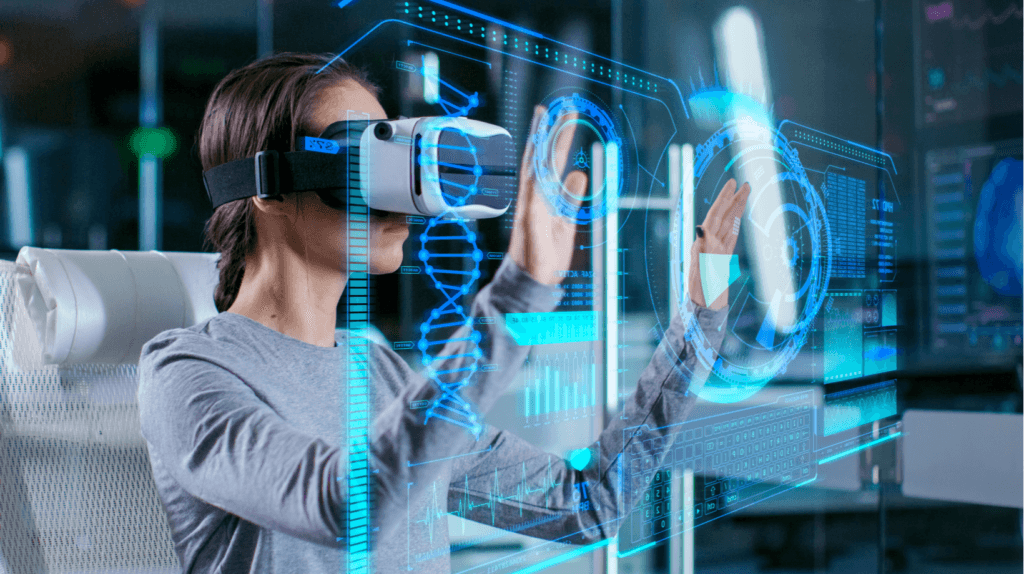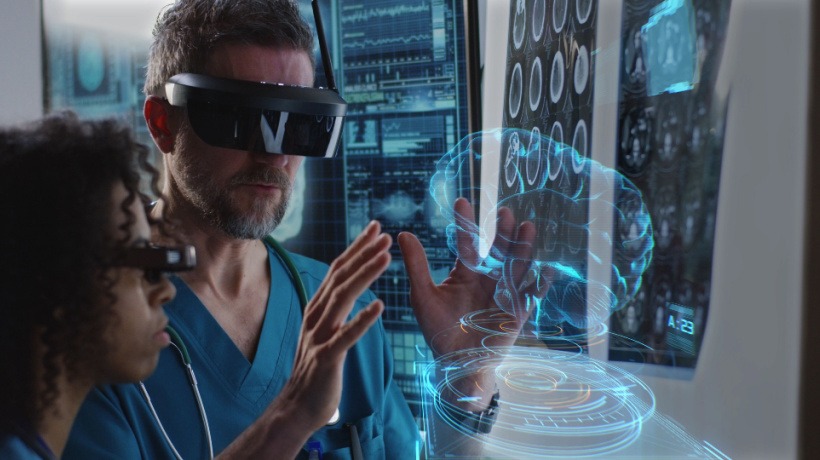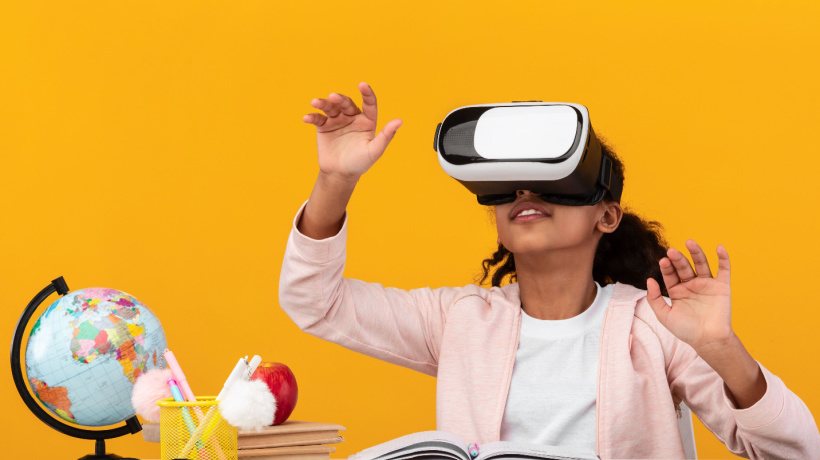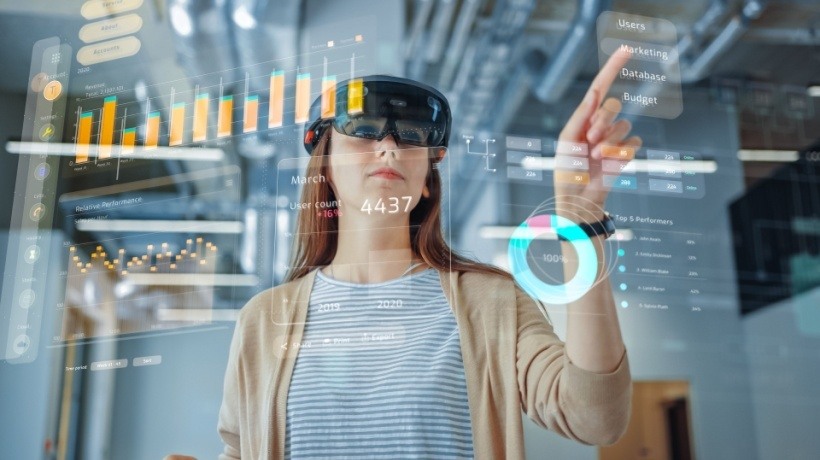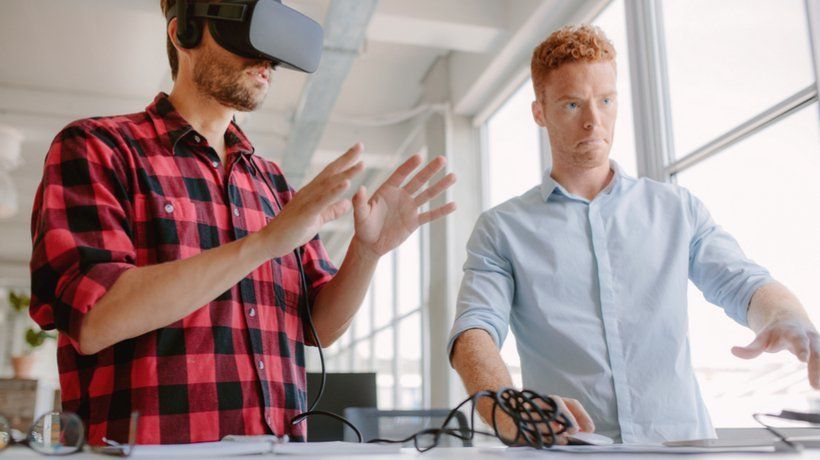Statistics That Depict The Emerging Scope Of AR In eLearning
There has been a lot of buzz around the scope of Augmented Reality (AR) for modern workforce training, and how it will revolutionize eLearning. Improving the overall business productivity has always been at the forefront of catering to the pertinent learning needs of all. Modern Learning Management Systems (LMSs) are utilized to support AR technology, which helps to accelerate learning efficiency, improve employee engagement and knowledge retention levels. As per the research by IDC forecast, revenues generated through both these technologies will increase to $9.1 billion this year. Also, enterprises expect VR/AR sales to rise by 95% in 2018 to reach $17.8 billion.
Large as well as small enterprises are now leveraging the AR functionality to drive a more competent workforce. By 2021, the market size of AR is expected to reach 215 billion US dollars. Accordingly, there is an expected rise in the overall market potential because of the ease of development and brand awareness among consumers.
AR at the workplace is emerging as one of the prime drivers for technological innovation. The headsets, smart glasses, and AR-based apps provide an added value to diverse industry domains, from retail and healthcare to manufacturing, aviation, and more. Some of the use cases of AR technology that help driving organizational success are discussed as follows:
Retail
Today, a majority of companies face challenges when it comes to training their sales personnel. Therefore, employees use their smartphones and tablets to provide relevant information on different products. Organizations deploy mobile LMSs as mobile apps to virtually showcase features and benefits of the entire product range. It creates an optimal way of highlighting concepts through audios, visuals, and animations. This interactive experience helps customers gain a better understanding of the products on their features, functionalities, and available configuration options.
Healthcare
From performing critical surgical procedures to operating MRI equipment, online platforms support AR technology to increase the effectiveness of workplace training in the healthcare sector. By using an AR headset during training, the surgeons, clinicians, and other healthcare experts perform a minimally invasive process. Through 3D scanning, doctors understand the complex anatomy better, to attain more accuracy while doing any surgery. As a result, it helps to boost learner competency, their knowledge, and workplace retention levels during the entire training scenario.
Industrial Fields
Some of the leading manufacturing companies deploy augmented smart glasses and custom mobile apps through a robust eLearning platform. The effective solution enables field engineers to seek help from experts located anywhere across the globe. Use of AR in training helps to mitigate field risks, follow safety measures, and reduce pressure from the engineers who might not be experts in all technologies.
In addition to the above, AR also offers ample opportunities for employees working in hazardous conditions in industries such as oil and gas, energy, pharmaceutical, and more. Smart glasses are ideal for such environments where the workforce needs to undergo training based on safety instructions, remote assistance, and more.
Unlike Virtual Reality, where the learner is transformed into another environment, AR uses interactive digital elements to enhance real-world conditions. Advanced technology uses a camera and display, such as smartphones and tablets, or wearable technology like Google Glass to display graphical information in real time. Augmented Reality embraces shorter learning curves, efficient workforce, and flexible workplace environment, thereby delivering a uniform experience. Thus, the future of VR and AR is very bright, and their emerging use for corporate training points to a workforce that is smarter, mobile, and more productive than ever before.
AR holds an immense potential to improve human aspects of learning by imparting customized learning solutions. By using an innovative framework of AR for corporate training, organizations can effectively deliver an immersive User Experience for dispersed audiences. The right mix of technology and innovative ideas have certainly changed the way organizations do business and perform activities in everyday life.
